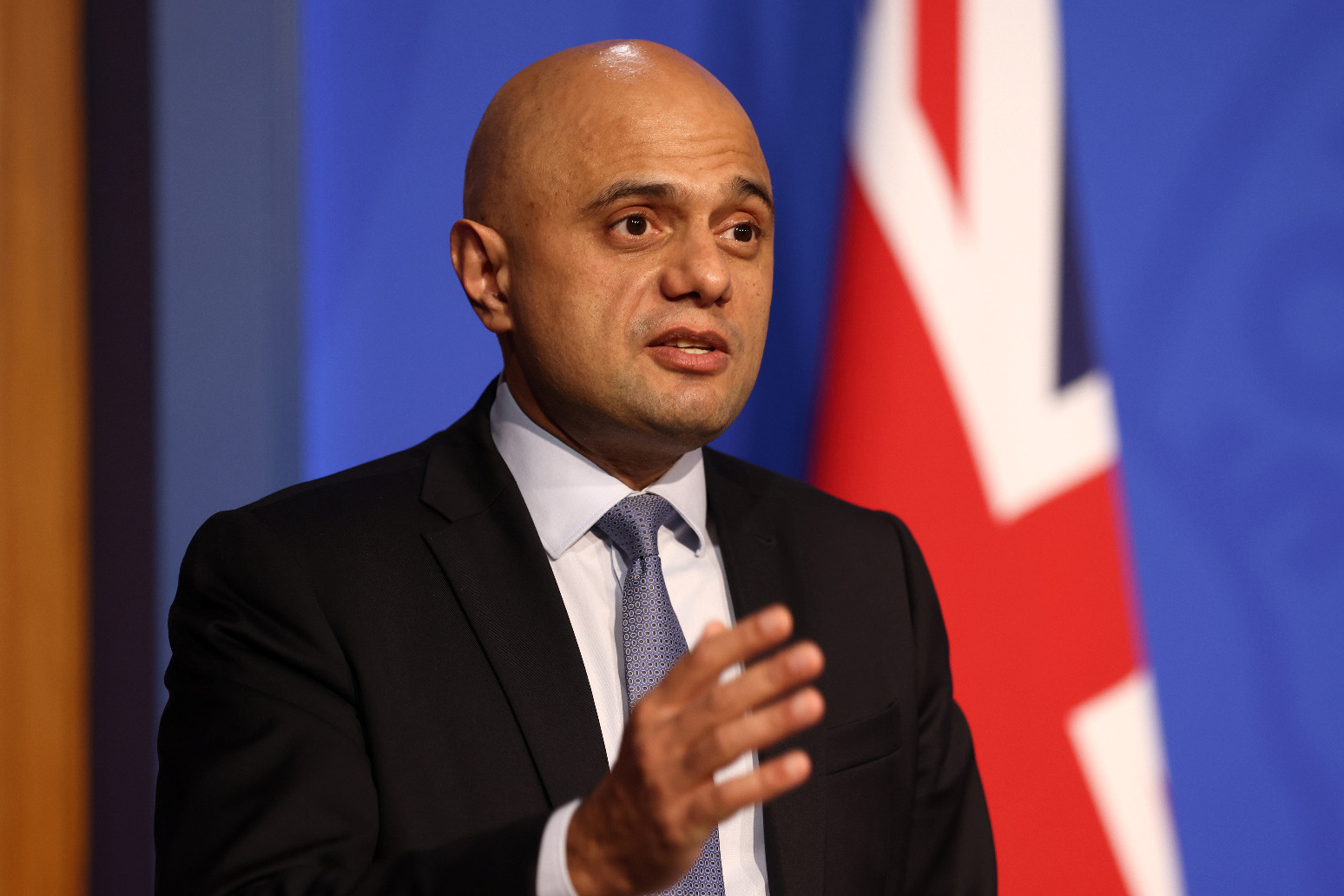
No further Covid restrictions in England before 2022
Saijd Javid has made the announcement following ministers reviewing the latest data
The Health Secretary has said no further coronavirus restrictions will be introduced in England before the new year after ministers reviewed the latest data.
Sajid Javid said “people should remain cautious” and urged those marking the start of 2022 to consider testing themselves beforehand and to celebrate outside, with the Omicron variant growing so fast that it accounts for 90% of all new Covid-19 cases.
The decision not to impose restrictions beyond the Plan B measures already in place in England comes after Prime Minister Boris Johnson was briefed on the impact Christmas mixing had had on coronavirus infections and hospital admissions.
Mr Javid told broadcasters on Monday: “We look at the data on a daily basis – that hasn’t changed over the Christmas period.
“But there will be no further measures before the new year. Of course, people should remain cautious as we approach New Year’s celebrations.
“Take a lateral flow test if that makes sense, celebrate outside if you can, have some ventilation if you can.
“Please remain cautious and when we get into the new year, of course, we will see then whether we do need to take any further measures, but nothing more until then, at least.”
The Health Secretary’s comments came after Mr Johnson had spoken with chief medical officer, Professor Chris Whitty, and chief scientific adviser, Sir Patrick Vallance, about the Covid picture in the country.
The decision not to impose post-Christmas curbs on socialising puts England at odds with other parts of the UK, where post-Christmas restrictions have been deployed.
Restrictions on hospitality and large events have been brought in for those in Scotland, Wales and Northern Ireland, with the Scottish Government ordering nightclubs to be shuttered from Monday while hospitality businesses will need to return to offering only table service if serving alcohol.
England will remain under the UK Government’s Plan B rulebook until at least January 1, with guidance to work from home, mask wearing in shops and other public settings, and Covid passes to gain entry to large events.
Asked why the UK Government had arrived at a different conclusion to the devolved administrations despite using the same data, Mr Javid said it was “for each country that makes up the United Kingdom to decide”, and pointed to the decision to release restrictions at different rates during the summer.
Meanwhile, the Cabinet minister admitted there was a staffing “challenge” in the NHS, particularly in London where the high rate of Covid infections has forced considerable numbers of the workforce into isolation.
But Mr Javid argued that the reduction in the isolation period, from 10 days to seven as long as negative tests are recorded on the final two days, had helped ease the pressure.
Staff absences are creating such pressure that “even relatively small numbers of extra Covid cases may bring difficult decisions on prioritisation and staff redeployment”, according to NHS Providers chief executive, Chris Hopson.
But Mr Hopson added that while coronavirus cases were growing, NHS trusts, which his organisation represents, were not overwhelmed, with far fewer people requiring ventilation than during the last winter peak.
On Monday, NHS England declared there were 1,281 Covid-19 hospital admissions in the country on Christmas day.
This was up 74% week-on-week and the highest number since February 16. During the second wave of coronavirus, admissions peaked at 4,134 on January 12.
In London, 364 admissions were reported on December 25, up 73% week-on-week but below the 390 admissions reported on December 23.
A total of 8,474 people were in hospital in England with Covid-19 as of 8am on December 27, NHS England added.
Mr Javid used his interview to urge people to take up the offer of a booster vaccination, declaring that there were 1.5 million slots available over the next few days.
He said 75% of eligible adults had received their booster, with the Government still aiming to hit its accelerated target of having administered a jab to all those aged over 18 who want one by January 1.
Earlier on Monday, NHS figures showed that more than 12,000 people were vaccinated against coronavirus on Christmas Day, with hundreds of thousands taking up the offer of a so-called “jingle jab” between Christmas Eve and Boxing Day, including more than 10,000 top-up doses.
Scores of sites were in operation over the period, with Redbridge Town Hall in Ilford, London, top of the rankings as the busiest site on Christmas Day, with more than 900 people jabbed.
Published: by Radio NewsHub